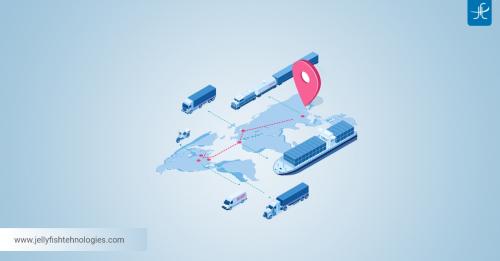Smart Tracking Solutions for Transportation and Logistics Business

With traditional supply chain management solutions like the RFID technology, even a solid logistics network for a particular asset will tend to fall short at some point in time when a negative event occurs, like a truck getting stuck in traffic or an asset going missing.
Although they can help you track assets as they arrive at each destination, they will leave you largely in the dark about what happens in between, through a complex supply chain.
These outdated solutions do not allow logistics managers to find out about delayed or misrouted assets.
At times, the assets may not arrive at all.
The result?
Lack of information. Lost productivity. Damaged client relationships. Increased warehousing expenses.
In case of such negative events, early intervention could reduce several losses further down the supply chain.
The transportation and logistics industry needs a modern way to track the location of assets in real-time, as they move along different transportation routes globally.
Thanks to new technologies like the Internet of Things (IoT), the logistics and transportation industry finally has smart vehicle tracking solutions that provide incredible transparency for managing goods and improving fleet management all along its logistics networks.
Benefits of logistics tracking
Logistics tracking systems allow you to view the location of your fleet vehicles in real-time from anywhere and any time. Built on GPS technology, these trackers prove to be an all-in-one solution for vehicle tracking and security.
The real-time tracking data fetched by the tracking device can easily be accessed via SMS or any web browser across devices
Here are some of the top benefits of vehicle tracking solutions:
1. Control vehicle use and lower fuel costs
Advanced GPS logistics tracking systems provide visual dashboards that are easy to understand and analyze. With such information at your fingertips, you can observe fuel effectiveness and take appropriate steps to lower your fuel costs.
A car being used after hours will increase fuel costs. Imagine having to pay for the repair costs of your fleet vehicle even when an accident occurred after hours, without you knowing!
With a vehicle tracking solution, you will know if a car is being used after hours, and if an accident occurs outside of the official hours, the repair costs are the responsibility of the company.
Ready to have total control over vehicle use?
2. Increase security and prevent theft
The logistics tracking system tracks the status of cargo and updates it in the system, thus allowing you access to the latest information about your cargo. You may even opt to get this information through SMS alerts or emails.
By knowing your company vehicle’s real-time location, you can ensure whether it is in a safe spot or not.
The latest vehicle tracking systems even have an SOS button that the driver can press in case of an emergency (like theft) to ask for help. This will instantly send an alert to the fleet manager or local authorities who can then send help as soon as possible.
3. Reduce insurance costs
According to a report published by Statista in October 2020, the recovery rate of stolen vehicles in the United States was less than 60% in 2019.
Business auto insurance costs can be quite high. For fleet companies, the costs are even higher.
Fortunately, there are ways to reduce insurance costs with a GPS tracking device.
On installing a GPS-based vehicle tracking solution, insurance companies give you a huge discount. It’s a great way to save money on your car insurance. Insurance companies are more willing to insure vehicles with lower risk.
Smart tracking solutions for the logistics and transportation sector
- Vehicle Tracking and Route Management Solutions
- Route Management
- Vehicle Tracking
- Driver Activity Monitoring
- Vehicle and Goods Monitoring
- Real-Time Cargo Monitoring
- Real-time tracking of assets and container variables
- Fleet Operations Tracking
- Real-time tracking of vehicles’ location, running time, idle time, average speed, etc.
- Traffic patterns monitoring
- Optimal routes evaluation
- Driver behavior monitoring
- Optimum Asset Utilization
- Vehicles’ maintenance needs prediction
- Cut-down on unplanned downtimes
- Vehicles’ idle time monitoring
- Underperforming business routes analysis
- Asset Monitoring Solution
- Location tracking & loss prevention
- Inventory optimization
- Environmental monitoring
- Supply chain data services
- Asset financing
To sum up
DHL is an excellent example of a logistics business that boasts of smart trucks with anti-theft measures and sensors that are capable of regulating temperature and tracking cargo in real-time.
Ready to track and manage vehicles and critical assets from anywhere, at any time, on a global scale?
Jellyfish Technologies helps logistics companies become smarter by developing custom smart logistics solutions for them using leading-edge technologies like IoT, Analytics, Mobility, and Cloud.










Comments